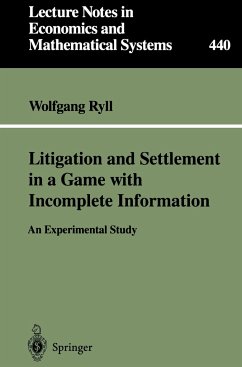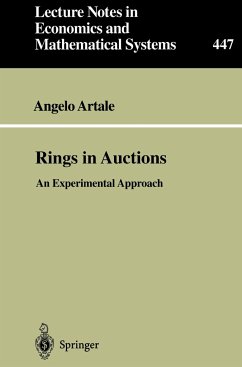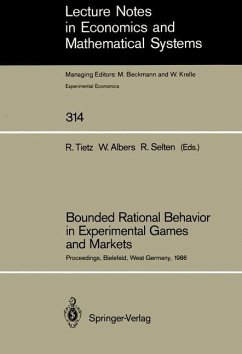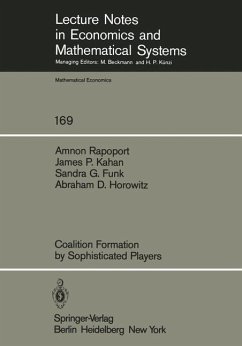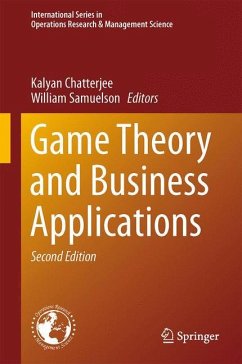
Two-Person Bargaining Experiments with Incomplete Information

PAYBACK Punkte
20 °P sammeln!
Think of the following situation: A project yielding a gross profit of 100 is offered to two firms. The project can only be conducted by a cooperation of the two firms. No firm is able to conduct the project alone. In order to receive the project the firms have to agree on the allocation of the gross profit. Each of both firms has an alternative project it conducts in case the joint project is not realized. The profitability of an allocation of the joint gross profit for a firm depends on the gross profit from its alternative project. The gross profit from an alternative project can be either ...
Think of the following situation: A project yielding a gross profit of 100 is offered to two firms. The project can only be conducted by a cooperation of the two firms. No firm is able to conduct the project alone. In order to receive the project the firms have to agree on the allocation of the gross profit. Each of both firms has an alternative project it conducts in case the joint project is not realized. The profitability of an allocation of the joint gross profit for a firm depends on the gross profit from its alternative project. The gross profit from an alternative project can be either 0 (low alternative value) or O





